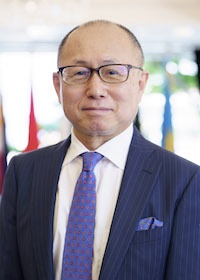Business School Myths, Misconceptions, and Questions
Business schools tend to be thought of by the uninitiated as graduate schools of management that teach business administration and award MBAs to those with undergraduate backgrounds in economics and finance, but this is not accurate. In fact, business schools that exist around the world provide education to a much wider range of participants. This is very important to consider when hiring business school graduates, so HR professionals in particular need to understand this accurately.
Myths about employment
In the past, many b-school graduates went into investment banking or consulting. While many graduates continue to find work in these industries, there are many different job opportunities available to students, from marketing to tech to sustainability to startups.
Every industry needs management-minded individuals contributing to teams at every organizational level. Even those not acting in managerial roles must always consider the managerial perspective when proposing ideas and making decisions. No matter where you may find yourself working, the concepts mastered through management education will provide a context for better understanding and professional growth.
Myths about degrees
Graduating from a master's program at a business school does not necessarily mean that you have obtained an MBA. This is because there are two main types of degree programs offered by graduate schools of management: comprehensive programs in business administration (MBA), and specialized MSc programs in specific areas such as marketing and finance (Master of Science in a specialized field).
In addition, some business schools also offer non-degree programs (Executive Education) for professionals, which are larger in scale than degree programs. Further adding to the confusion, there are training companies offering only this type of executive education that refer to themselves as business schools.
Different countries have different standards for establishing universities, and in some cases, each state has slightly different standards, which means that there are countless standards for business schools. In Japan, the Ministry of Education, Culture, Sports, Science and Technology (MEXT) has established standards for the establishment of universities, and the minimum standard for a business school is to offer degrees (bachelor's, master's, doctoral) related to business administration after meeting these standards. However, with the existence of both national and private universities, as well as graduate and professional schools in Japan, the reality is that there is more than one establishment standard for business school education.
Demystifying business school: the role of international accreditation
Organizations such as AACSB, AMBA, and EFMD aim to define what a business school is from an international perspective by establishing global standards and providing third-party accreditation. These international accreditations of business schools aim to evaluate the quality of programs and research capabilities from an international perspective, and ultimately create a place for business schools to compete and improve each other.
Business School Program Structure (Example: MIT Sloan)
- Doctorate (Ph.D.)
- Executive MBA (Master)
- MBA (Master)
- Master of Finance
- Master of Business Analytics
- Master of Science in Management
- Executive Education (Adult Education)
- Undergraduate
Source: http://mitsloan.mit.edu/academic/
Myths about the business school student body
While it has been true that business school classes have mostly been made up of men, this is becoming increasingly inaccurate in today's day and age. Particularly in courses offered in English at our school, almost half of the students are women, with upwards of 10 different nationalities represented in one course alone. Diversity of perspective breeds better ideas and well-rounded critical thinking, and companies around the world are beginning to take notice.

 Brochure
Brochure
 Info Session
Info Session
 Application
Application
 Alumni Voices
Alumni Voices















